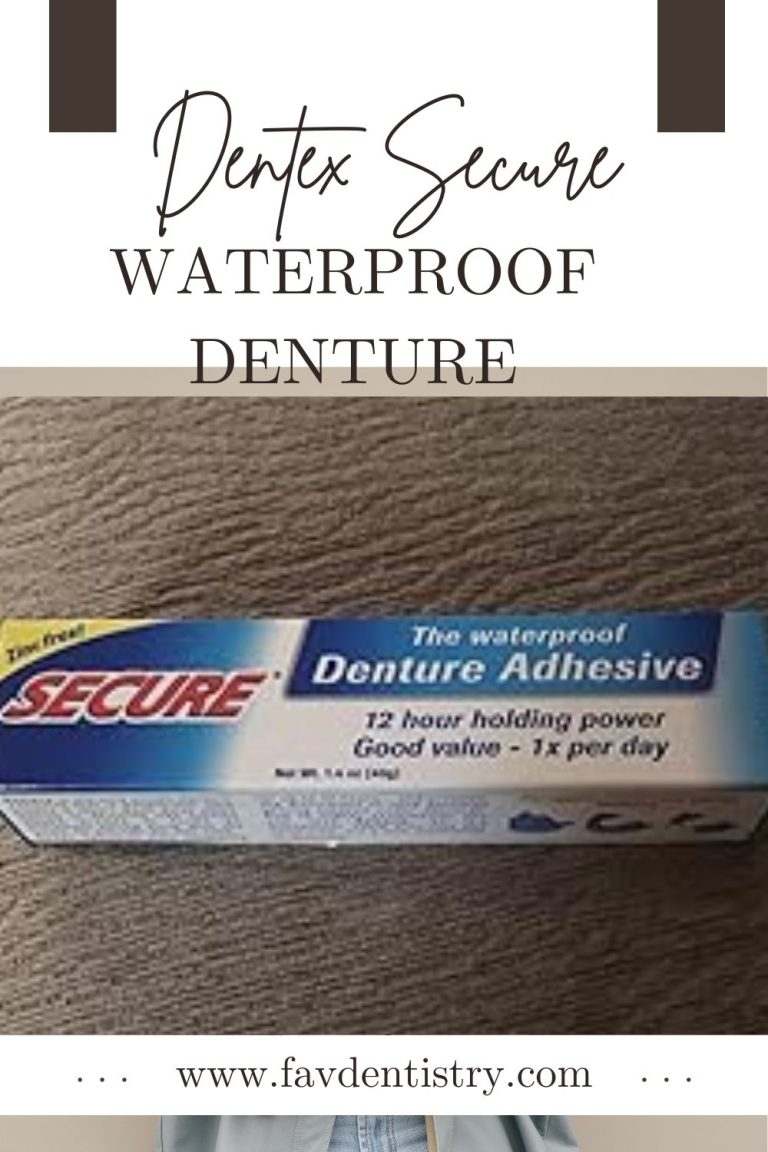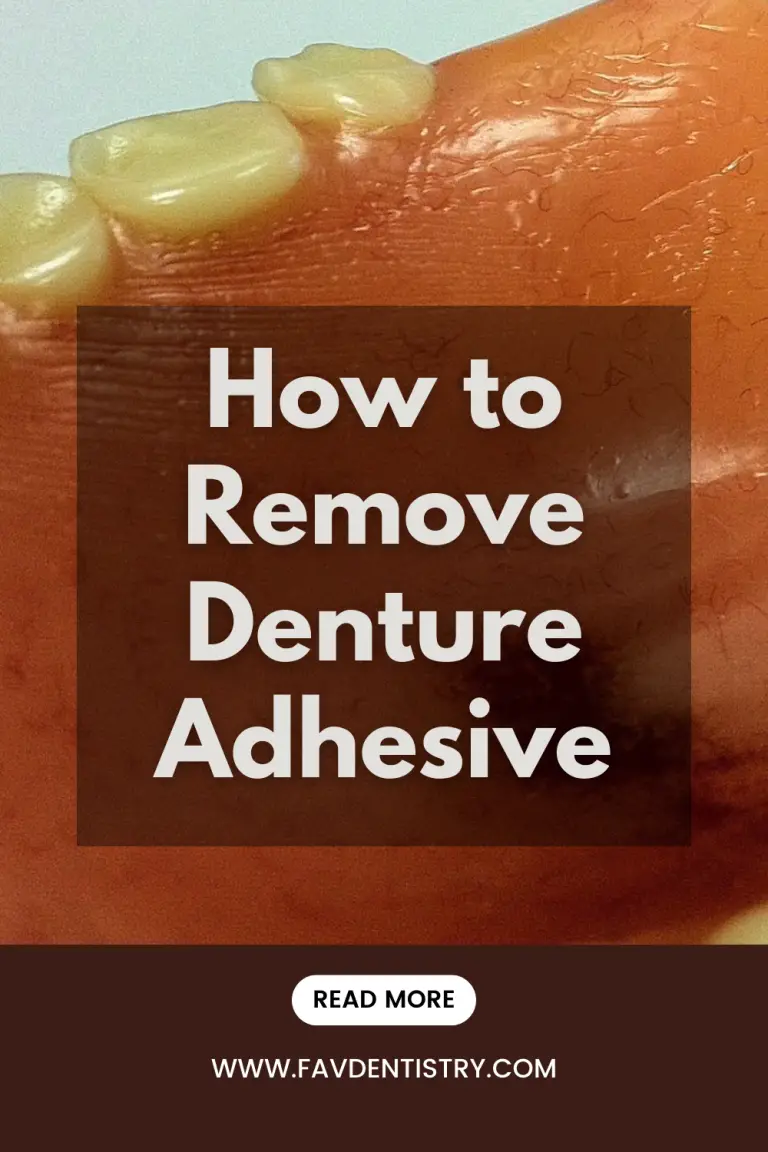How to remove plaque from dentures instantly
Last Updated on 6 months by DR. ALBIN SIPES
Do you want to prevent bad breath and remove plaque from dentures instantly? This is an easy task when you know the secret: removing plaque from dentures. While it may seem daunting, removing plaque from your dentures is a simple process that can be done with a few household items and in just minutes. In this article, we’ll explain how to clean away plaque quickly using a soft-bristled toothbrush, warm water, and our tips on effective removal so you can enjoy healthy teeth again!
Understanding Plaque on Dentures
Before diving into the steps on how to remove plaque from your dentures, it’s important to understand what plaque is and why it can be harmful. Plaque is a sticky film of bacteria that forms on your teeth and dentures. It can cause bad breath, tooth decay, gum disease, and even damage to your dentures if it’s not cleaned regularly. So, it’s essential to keep your dentures free of plaque in order to maintain good oral health.
why does plaque form on dentures?
Plaque can form on dentures due to a variety of reasons. These include poor oral hygiene, not cleaning dentures properly after each meal, and consuming foods and beverages that promote plaque growth such as sugary or acidic foods. Additionally, if dentures are not fitted properly or there are rough areas on the surface of the dentures, it can create an ideal environment for plaque to thrive.
consequences of allowing plaque to accumulate on dentures
Allowing plaque to accumulate on dentures can lead to various consequences. These include bad breath, discoloration of the dentures, and an increased risk of developing gum disease or tooth decay. Plaque can also cause discomfort and irritation in the mouth, making it difficult to wear dentures comfortably. Moreover, over time, if plaque is not removed from dentures, it can cause damage to the dentures themselves, leading to costly repairs or replacements.
why regular cleaning is essential to prevent plaque-related problems?
Regular cleaning of dentures is essential to prevent plaque-related problems because it helps to remove the bacteria and food particles that can accumulate on the denture surface. By removing this buildup, you can reduce the risk of bad breath, discoloration, and other issues caused by plaque. Furthermore, regular cleaning also ensures that your dentures are comfortable to wear and maintain their shape
Tools and Materials Needed for plaque removal from dentures
Before we get into the step-by-step instructions, let’s take a look at the tools and materials you’ll need to effectively remove plaque from your dentures:
- A soft-bristled toothbrush: This will help to gently scrub and clean the surface of your dentures without causing any damage.
- Warm water: Warm water helps to loosen plaque and make it easier to remove.
- Denture cleaner or mild dish soap: These products can help to effectively clean away plaque and bacteria from your dentures.
- A small bowl or sink: This will be used to soak your dentures in the cleaning solution.
- A soft, clean towel: You’ll need this to dry off your dentures after cleaning them.
Step-by-step Guide on How to Remove Plaque from Dentures
Now that you have all the necessary materials, here’s how you can remove plaque from your dentures in just a few minutes:
1. Preparing the workspace
The first step is to ensure that you have a clean and safe area to work in. Place a soft towel on the counter or in the sink to prevent any damage if your dentures accidentally fall.
2. Rinsing dentures under lukewarm water
Take your dentures and rinse them under lukewarm water to remove any food particles or debris that may be stuck on the surface. This will help to make the cleaning process easier.
3. Brushing dentures gently with a denture brush or soft-bristled toothbrush
Apply a small amount of denture cleaner or mild dish soap onto your denture brush or soft-bristled toothbrush. Gently scrub the surface of the dentures, making sure to reach all areas, including the crevices and grooves.
4. Using a denture cleaner or homemade cleaning solution.
If you’re using a denture cleaner, follow the instructions on the packaging. If making your own cleaning solution, mix equal parts of warm water and mild dish soap in a small bowl or sink.
5. Soaking dentures if necessary
If your dentures have stubborn plaque buildup, you can soak them in the cleaning solution for a few minutes to loosen them up. However, be sure not to leave them soaking for too long as this can damage the dentures. Because dentures are made of different materials, consult with your dentist about the ideal soaking time.
6. Additional tips for stubborn plaque.
If you’re still struggling to remove plaque from your dentures, try using a specialized denture cleaner or soaking them in a mixture of equal parts water and vinegar. Vinegar’s acidic properties can help break down tough plaque buildup.
Alternative Methods and Homemade Solutions for plaque removal from dentures
If you don’t have access to a denture cleaner or mild dish soap, there are several alternative methods and homemade solutions that you can use to remove plaque from your dentures. These include:
- Baking soda paste: Mix equal parts baking soda and water to form a thick paste. Apply this paste onto your dentures and gently scrub with a soft-bristled toothbrush.
- Hydrogen peroxide solution: Mix equal parts hydrogen peroxide and water in a small bowl or sink. Soak your dentures in this solution for a few minutes, then brush them with a soft-bristled toothbrush.
- Lemon juice: The acidic properties of lemon juice can help to break down plaque. Simply apply some lemon juice onto your dentures and let it sit for a few minutes before gently brushing with a soft-bristled toothbrush.
- Denture adhesive remover: If you have a stubborn plaque that won’t come off, try using a denture adhesive remover to help break it down. Be sure to follow the instructions on the product carefully.
Some Final Tips to Keep Your Dentures Plaque-free
After cleaning your dentures, it’s important to take steps to prevent plaque buildup in the future. Here are some final tips to keep your dentures plaque-free:
- Brush your dentures at least twice a day: Just like natural teeth, regular brushing is essential for removing bacteria and food particles that can cause plaque.
- Rinse dentures after meals: Whenever possible, rinse your dentures under water after eating to remove any food particles.
- Soak dentures overnight: Soaking your dentures in a cleaning solution or plain water overnight can help to loosen and remove plaque buildup.
- Visit your dentist regularly: Regular dental check-ups are important for keeping your mouth and dentures clean and healthy. Your dentist can also professionally clean your dent
Pros and cons of using homemade solutions for plaque removal from dentures
While homemade solutions can be effective in removing plaque from dentures, they also have their drawbacks. Some pros and cons to consider include:
Pros of using homemade solutions:
- Cost-effective: Homemade solutions use everyday household items, making them a more affordable option compared to commercial products.
- Natural ingredients: Most homemade solutions use natural ingredients that are less likely to cause irritation or harm to denture materials.
Cons of using homemade solutions:
- Not as effective: Homemade solutions may not be as effective in removing tough plaque buildup compared to commercial products that are specifically formulated for dentures.
- Time-consuming: Some homemade solutions may require more time and effort compared to using a commercial denture cleaner.
Safety precautions when using homemade remedies for plaque removal from dentures
Before using any homemade solution on your dentures, it’s important to take some safety precautions to avoid damaging them. These include:
- Avoid using hot water: Hot water can warp or damage dentures, so always use lukewarm or cool water.
- Test the solution first: Before applying a homemade solution to your dentures, do a patch test on a small area to ensure it doesn’t cause any damage or irritation.
- Rinse thoroughly: After using a homemade solution, be sure to rinse your dentures thoroughly under lukewarm water before wearing them again. This will help to remove any residue and prevent any potential harm to your mouth.
- Consult with your dentist: If you have any concerns about using a homemade solution on your dentures, it’s always best to consult with your dentist for advice and guidance. They can also recommend specific products or ingredients that may be more effective in removing plaque from your dentures.
Avoid common mistakes people make when cleaning dentures
Cleaning dentures can be a delicate process and mistakes can lead to damage or ineffective cleaning. Here are some common mistakes people make when cleaning their dentures:
- Brushing too vigorously: Aggressive brushing can cause scratches or wear down the material of dentures, making them more prone to plaque buildup.
- Using toothpaste: While it may seem like a logical choice, toothpaste can be too abrasive for dentures and cause damage over time.
- Not soaking dentures: Soaking dentures helps to loosen and remove plaque, so skipping this step could result in ineffective cleaning.
- Using hot water: As mentioned before, hot water can warp or damage dentures, so it’s best to use lukewarm or cool water when cleaning them.
- Not following instructions: Whether using a commercial denture cleaner or a homemade solution, always follow the instructions carefully to avoid any potential harm to your dentures.
Why these mistakes should be avoided to maintain oral health.
Avoiding these mistakes when cleaning dentures is crucial for maintaining good oral health. If dentures are not properly cleaned, plaque can build up and cause gum disease, bad breath, and other dental problems. Additionally, using incorrect methods or products can damage the material of the dentures and decrease their lifespan. Therefore, it’s important to take proper care of dentures to ensure good oral health and prolong their longevity. So, be sure to follow these tips and precautions for a happy, healthy smile! Keep those pearly whites plaque-free with the right cleaning methods and products. Your dentures (and your mouth) will thank you! Remember to always consult with your dentist for any concerns or questions about keeping your dentures clean and maintaining good oral health.
Conclusion
In conclusion, removing plaque from dentures instantly is possible with the right cleaning methods and products. While homemade solutions can be effective, it’s important to take precautions to avoid damaging your dentures. Regularly cleaning and maintaining your dentures will not only keep them looking clean and fresh but also promote good oral health. And don’t forget to visit your dentist regularly for professional cleaning and advice on proper denture care. For more information on denture cleaning, check out these sources:
ADDITIONAL RESOURCES:


